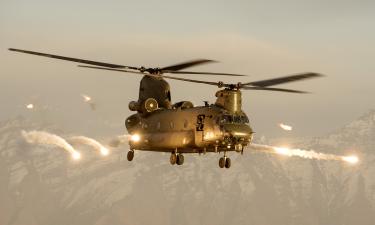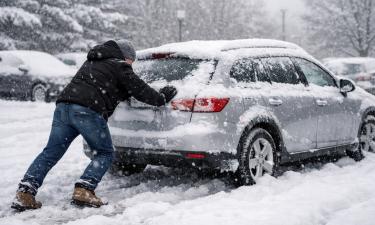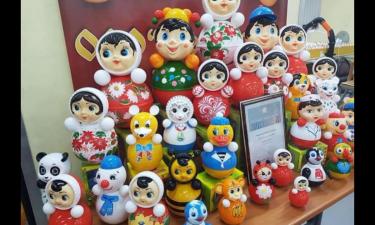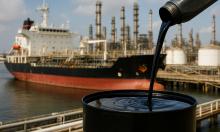What Will be Russia Like after Putin?
A long pre-election campaign has started. Politicians are polishing their arguments. Political technologists are making up estimates of their prospective earnings
A long pre-election campaign has started. Politicians are polishing their arguments. Political technologists are drawing up estimates of their prospective earnings during the forthcoming parliamentary pre-election campaign in December 2003 and the presidential campaign in March 2004.
When we come to the essence of the forthcoming debates we immediately arrive at two important questions: whether anybody hopes for rather soon revival of the country and what politician in Russia inspires this hope in the people. Unfortunately, the two questions are asked rather seldom; but if they were answered we would have had an exact opinion about the attitudes among the population and could predict the character of the forthcoming political events.
At the end of the 1990s, when we practically lost the hope for the possibility of making a regular mode of living, when homebred prophets said this was the end for Russia will no chance of revival, I decided to find out whether the pessimistic views upon Russia were shared in the West as well.
Certainly I meant not mere accidental people, although their opinions are very interesting sometimes, but people of an excellent way of thinking who had no passionate affection for Russia. Those people could be rather objective. I chose top government officials whom I knew and highly appreciated for their strong and keen minds.
At one of the meetings I asked the wise Helmut Schmidt, a brilliant European politician: "How much time do you think Russia needs to recover and reach the level of a prosperous power?" The politician answered that Russia might need 25-30 years. He substantiated the opinion with the experience of the former German Democratic Republic when it was catching up with the economic level of the Federative Republic of Germany; it was long and hard experience despite of annual investments of several billion dollars into the Eastern German economy. The politician added that no investments of the kind were being made in Russia.
Helmut Schmidt was cautiously optimist. Once in New York, I visited Henry Kissinger, the man known for having the strongest intellect across the Atlantic Ocean and asked him the same question. The Nobel Prize winner said that the situation would depend upon the attitudes of the Russian people, upon the desire to take part in restoration of the country. If the people enable the greatest potential it holds and finds a strong leader it may regain the status of an economically strong country in 10-12 years.
So, the two different politicians proceeded from the probability of a rather fast progress in development of the social and economic situation in reviving democratic Russia.
What do Russians need to have the particular attitude to set to reviving of the country? Especially on the eve of forthcoming elections politicians suggest lots of attractive methods: increase of wages, pensions, scholarships; reduction of inflation, taxes, exactions; development of the judicial, military and communal reforms. There are many other suggestions borrowed from the archives of specialists working on processing of public opinion.
No doubt, all the propositions are good. But it was known to ancient Romans already that plurality of promises undermines confidence. People become indifferent to the promises then. And this is the reason why they are reluctant to devote their efforts to new objectives that the people consider to be ephemeral. It often happens so that when the people feel inclined for active work, the bureaucracy, mafia and tangled laws make people lose interest in this work. Then people lose the hope and the impulse.
It is typical for the Russian people that we are ready to follow a strong leader (a prince, a tsar, an emperor, a secretary general or a president) in any complicated situation if we feel that great changes are coming and life is to improve soon.
But it is for over 100 years that the peculiarity has not been taken into consideration when the people were promised radiant future. In fact, the people in Russia do not get touched with an idea that has nothing to do with an adequate leader. Peter the Great, for example, was the idea and the leader. Later only Joseph Stalin during the war against Fascism managed to become associated in the people’s minds with the images of the great heroes - Alexander Nevsky, Dmitry Donskoy, etc. The people often associated him with the idea of greatness of the past and treated the Soviet leader as a savior.
I think this complicated factor explains one of the original Russian explanations to the present-day apathy and low spirits that have grasped majority of the population, the population overwhelmed with hopelessness. However, an analysis conducted by the Expert magazine recently unveiled that 40 per cent of the population trust only the president out of the whole number of governmental officials. If the people trust the president it means they may follow him if it is necessary.
The slowly increasing middle class of the population pins the hopes for the future on the incumbent President Vladimir Putin. The mentioned 40 per cent may increase by 15-20 per cent by the presidential elections in 2004; this 15-20 per cent of voters sees no other adequate candidate who could make for positive development of the country. What about the rest of the electorate?
Unfortunately, the indifference of the authorities to the needs of the population correspondingly meets the indifference of people themselves to their own fate. The people won't man the barricades like the French; they won't pile senators and congressmen with letters like Americans; Russians won't go on strikes like Italians. They just lose heart in the poky hole of Russia. And that politician who gives hope to the people will win the presidential elections in 2008. Then, it is not ruled out that Henry Kissinger's prediction on Russia's revival will come true.
Alexander Bessmertnykh
President of the Foreign Policy Association,
Former Soviet Foreign Minister
Subscribe to Pravda.Ru Telegram channel, Facebook, RSS!





